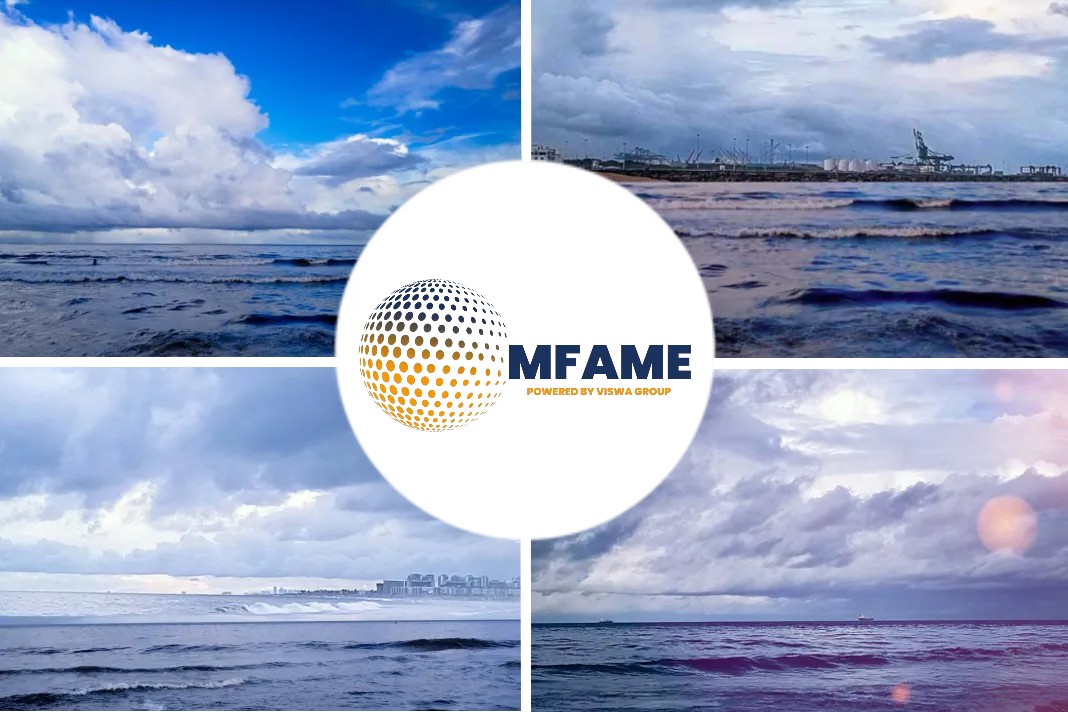- Thome is based in Singapore, and manages tankers, gas carriers, bulk carriers and container ships.
- The Thome Group has always put the mental health and well-being of its staff at the top of its priority list, says Rajesh Divakaran, head of Marine HR, with Thome Ship Management.
An article in Tanker Operator discusses Thome Ship Management, based in Singapore, and manages tankers, gas carriers, bulk carriers and container ships about how it is tackling the big issues of the day in ship management – seafarer mental health and vessel performance.
ISWAN’s Support to Seafarers
Both office based and sea staff have been under increased stress due to the changes and disruptions brought about by COVID-19, he says.
Its seafarers already had access to help and support but Thome upgraded this service recently with a 24/7 free and confidential helpline service provided by the International Seafarers’ Welfare and Assistance Network (ISWAN).
This has been further enhanced with Seafarer Assistance, a bespoke emotional support service operated by Swan Ltd, a subsidiary of ISWAN.
Helpline Assistance Features
The helpline is manned by specially trained councillors, and is available to seafarers’ families as well as employees. The company recognises the extra strain that its crews’ families are enduring due to the uncertainties brought about by the virus.
The Seafarer Assistance service can be accessed using email, live chat, Facebook, and WhatsApp.
It gives Thome employees tips on how to cope with feeling low, stressed, fatigued, and helping them maximise their psychological well being.
Competition Workouts for Stress-free Environment
Thome implemented seafarer competitions onboard to increase engagement and help relieve the stress and anxiety of seafarers during the pandemic.
“The competitions also increased camaraderie and teamwork among the seafarers,” says Mr Divakaran.
The competitions include an art competition, video and photo challenges, a holiday photo competition, The Voice Competition.
“The competitions were very successful as many seafarers and vessels participated. Thome received good reviews and feedback,” he says.
Crew Changes Support
Also, to ease the burden of financial constraints, Thome provided loans and financial assistance to seafarers who are unable to go abroad due to suspended crew changes.
Thome also provided seafarers with updates on crew change updates and other related Thome News, through regular circulars, e-mails and virtual meetings.
Thome has an active “Family Relations Group” which continuously maintains contact with the families of seafarers, to reassure that their loved ones onboard are safe. “It is important to provide more support not just to the seafarers but to the seafarers’ families as well,” Mr Divakaran says.
Engaging Webinars
Thome conducts regular webinars for seafarers in quarantine, such as TSM ‘Fridates’ (Friday Dates).
The event is aimed at increasing positivity and engagement during the time of quarantine, and entertaining the seafarers with song performances, games, and a raffle.
Taking Care on all situations
Thome does regular monitoring of crew health, including twice daily temperature checks for all onboard crew and any third-party visitors. Crew practise physical distancing onboard and wear appropriate PPE.
To maintain awareness on COVID 19 and appropriate safety protocols during the Pandemic, Thome sends out regular e-mails, circulars, social media and other online postings.
Vessel Performance Maintenance
For vessel performance, Thome has taken steps in line with the short-term, midterm and long-term measures set by IMO, says Rajiv Malhotra, Technical Manager, Technical support, Thome. This is to reduce carbon intensity by 40 per cent and 70 per cent by 2030 and 2050 respectively, and total annual greenhouse gas emissions by 50 per cent by 2050.
At the operational level, there is a focus on efficient voyage management through speed optimisation, weather routing, trim optimisation, and auxiliary power optimisation both during steaming and port operations, he says.
There is periodic maintenance of the hull, propeller, and fuel consumers (engines and boilers).
Analysts Engagement Performance
A team of vessel performance analysts, comprising naval architects and marine engineers, has been engaged. The company performance management system “NAU” has been significantly enhanced.
There is an emphasis on adopting additional equipment, such as mass flow meters, shaft power meters, energy meters and dataloggers, and advanced technologies for capturing and analysis of parameters.
Working on IMO Targets
For meeting the requirements arising from the regulations adopted in MEPC 75, it is targeted to revise the Ship Energy Efficiency Management Plan (SEEMP) to include requirements for reporting Carbon Intensity Indicators ( energy efficiency operational indicator / Annual Efficiency Ratio) annually, and a corrective action plan if these do not meet required levels.
Company’s Prime Focus
The company’s focus is on identifying the vessels that do not meet the IMO required EEXI levels and employing appropriate compliance alternatives, for example, Engine Power Limitation, retrofit of propulsion improvement devices like pre-swirl and post-swirl devices, propeller upgrades, and application of high-performance hull coatings.
Engine efficiency improvement potential is being explored through implementation of improved fuel component designs, engine de-rating, turbocharger upgrades and auto cut-off provisions, exhaust gas bypass, and efficient engine tuning through adoption of systems for closer fuel injection and exhaust valve control.
Variable frequency drives and energy saving lights are other features employed for contribution to fuel savings.
At the third level, from a long-term perspective, “there is an increased focus on preparing for adoption of technologies using LNG, biofuels, ammonia, batteries, electric propulsion, hydrogen fuel cells, wind,” he says.
Did you subscribe to our daily newsletter?
It’s Free! Click here to Subscribe!
Source : Tanker Operator
















